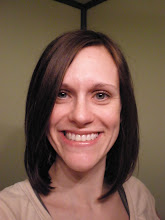Last week I wrote "Public service entails joining others in a common project of social change. How are we helping a larger public than just the LJHP? And why haven't we discussed issues beyond our immediate projects?" I've given this topic a lot of thought, especially as I've worked on my annotated bibliography, and the conclusion that I've come to is that our project is safe. I say safe because (our and their) race and class among other positionings are not challenged in the process of completing our project(s).
Students and instructor included, we are all white (though some of us may have well-hidden racial backgrounds) and bring with us white privilege. We all have at least four years of university experience and, since we are highly educated individuals, we are all assumed to be middle-class Americans, or at least people who had a middle to upper-middle class upbringing. All of those distinct positionings, though we rarely analyze them, give us the privilege to do exactly that--ignore our positionings and assume that we are all the same (or drastically different from Others).
Flaim and Jim, as representatives of the LJHP, are white, college-educated, middle-to-upper-middle class individuals, so there is little to discuss as far as social issues in our project(s) with them. However, one of the goals in many definitions of service-learning is to work with a group toward social change. Without the added critical look at social issues within the LJHP, I feel like this part of the course is aimless. So I've helped and will continue to help these people. So what? Without a critical look into "social injustices" that brought about the need for this project, I cannot answer that most important question. In fact, without professor guidance (i.e. questions for the blog, modeling of stories, etc.), we are not posed to delve into the issues, if any, that bring about a real need for this project.
I guess the question of need is a stopping point for me. I have a hard time justifying the work I'm doing as a real need of the LJHP and the greater community. In fact, considering the positionings and privileges of LJHP members, I see our research as fulfilling more of a want than a need. They want to produce their book sooner rather than later (maybe in five years, as opposed to the ten without our collaboration). Does the community need this book? I don't really think so. Will the community benefit from this book? No. Flaim and Jim claim that one of there missions is to stop the growth of McMansions on Lake James, but I don't see a connection between their project and this.
What could their projects, and our reflections, look like if the focus was truly on stopping the McMansion-izing of Lake James? First of all, I don't think the final product would be a book. In fact, I believe this course would focus on creating and performing public events in Angola and around Northeast Indiana to shed light on how upper classes taking over lake property effects other classes and lake life in general. Flaim and Jim already do this, but their focus is more on nostalgia and entertainment rather than on preservation. Instead of helping them with research for a book, we could be writing to government officials and giving demonstrations at town halls. Instead of journaling about research gaps, we could be reflecting on social injustice in class readings, our personal lives, and in our service-learning experiences. In this way, the course could also be cross-listed with an undergraduate sociology course.
Subscribe to:
Post Comments (Atom)

No comments:
Post a Comment